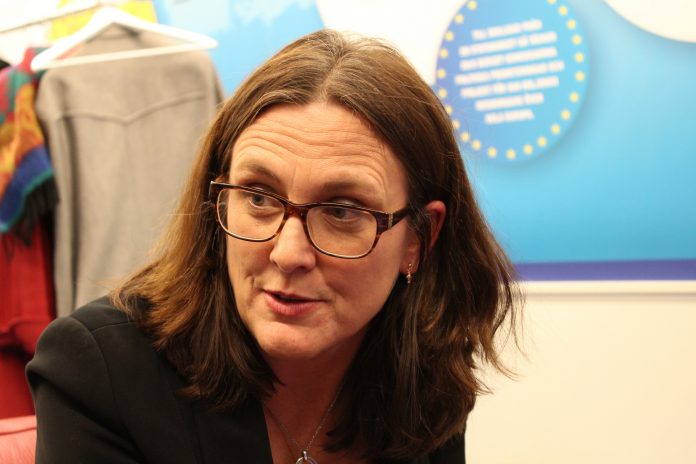The European Union’s duty-rebate schemes have had a positive impact on developing economies, according to a new report published jointly by the European Commission and the European External Action Service.
As reported by the European Commission, the reformed EU initiative known as Generalised Scheme of Preferences (GSP), which entered into force in 2014, has increased exports from countries to the EU (benefitting from these tariff cuts) by nearly a quarter. This translates to a yearly amount of €63bn.
Least developed countries benefited the most: their exports to the EU increased by nearly 40% and reached €23.5bn in 2016.
“Our policies offer generous access to the EU market, coupled with strong engagement with national authorities,” said European Commissioner for Trade Cecilia Malmström. “We’re now seeing positive changes in many places around the world – strengthening core values of EU trade policy such as human rights and sustainable development. Stronger domestic institutions and laws are helping to put crucial international conventions into place. In some countries, there are still areas of serious concern as regards human rights and sustainability. Here, our trade schemes provide leverage for us to apply pressure and effect change, and we need to strengthen our joint efforts.”
The report also notes progress made on issues such as women’s empowerment, child and forced labour, torture, illegal drugs trafficking and climate change. The EU monitoring reveals many positive changes due to EU engagement related to the scheme.
Examples listed by the European Commission include Pakistan’s new legislation against honour killing and rape, or the inclusion of Paraguay on the list of countries with the strongest commitment to the protection of endangered species under the Convention on International Trade in Endangered Species of Wild Fauna and Flora.
“When democracy and fundamental freedoms are guaranteed, our economies are strong, our societies are resilient, our security is sustainable and our development is built on more solid foundations,” said High Representative for Foreign Affairs and Security Policy/Vice-President of the European Commission Federica Mogherini. “The Generalised Scheme of Preference complements the European Union’s political engagement with its partners. As a result, we have contributed to the strengthening of civil society and independent voices and to the better protection of human rights through national legislation in partner countries. And we will continue to work together with our partners, investing in human rights, investing in the work of civil society, investing in open societies – to guarantee sustainable security for all.”
“The GSP scheme is a unique tool to put forward decent work conditions and respect for international labour standards,” added Commissioner for Employment, Social Affairs, Skills and Labour Mobility Marianne Thyssen. “The international dimension of employment and social policy is strategic to achieve job-rich, inclusive and sustainable growth… We are encouraged to see positive developments and to have an open dialogue on important labour rights issues, such as eliminating child labour. As significant challenges remain, it is even more so important to step up our efforts. We are committed to promote fundamental principles and rights at work and to achieve growth with benefits to all.”

